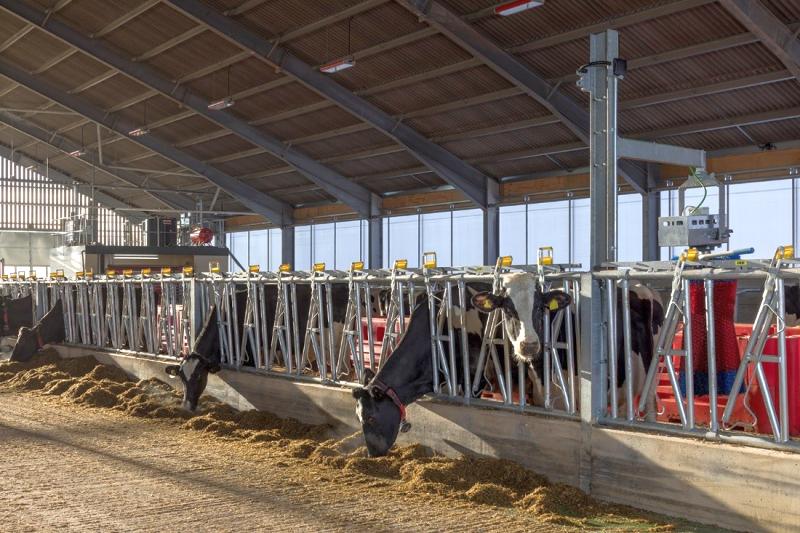
A new £6 million centre will help position the UK at the forefront of research into the health, nutrition and welfare of dairy cows.
The new Centre for Dairy Science Innovation (CDSI) is an extension to the University of Nottingham's existing dairy facilities.
CDSI will offer the latest research technologies for studying a range of dairy-related topics including mastitis control, antimicrobial resistance, feed efficiency, environmental emissions and new so-called wearable technologies for the herd.
Among the technologies in use are robotic milking machines that allow the cows to decide when they are ready to be milked and robot ‘scrapers’ which help to maintain the general hygiene of the facility by automatically disposing of waste.
The Centre was opened on today (23 May) by Sir Peter Kendall, Chairman of the Agriculture and Horticulture Development Board (AHDB), and former President of the National Farmers’ Union and World Farmers Organisation.
Nurition
The new facility will increase the size of the University’s dairy herd from 240 to 360 cows and will be focused on four main areas of research.
The facilities will allow studies with up to 100 individually-fed, high-yielding dairy cows and heifers to test the effect of a range of diets on milk production and composition, feed intake and live-weight change.
It will also study issues including rumen function, digestibility, greenhouse gas emissions, reproduction and feeding behaviour.
Disease and welfare
A new building will be the focus on emerging technologies to prevent disease and improve cow welfare.
The unique flexible housing facility for two groups of around 30 animals will allow researchers to evaluate the impact of the environment on the health, welfare and physiology of housed dairy cows.
It will be possible to test the effects of building layout, access to indoor and outdoor loafing space, feed space and bedding on cow physiology, production, health, welfare and economics.
Mastitis
New laboratory facilities will expand the Dairy Herd Health Group’s capacity to study mastitis and investigate novel therapies and vaccines derived from new genomic technologies.
These areas of research, led by Professor Jamie Leigh and Dr Tracey Coffey in the University’s School of Veterinary Medicine and Health, are concentrated on the leading causes of mastitis in the UK.
Robotics
In addition, the expansion will double the farm’s Lely Astronaut robotic milking machines from four to eight.
The cows decide when they are ready to be milked and go into the milking machine, where motorised brushes clean their teats before laser guided milking cups attach themselves automatically. When milking is finished, the cows’ udders are disinfected again before leaving the machine.
Small robot ‘scrapers’ will patrol the floor of the facility on a programmed route, slowly weaving their way around hooves and maintaining the general hygiene by pushing waste through specially-designed concrete slats in the ground, returning periodically to their stations to re-charge.
